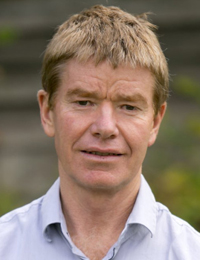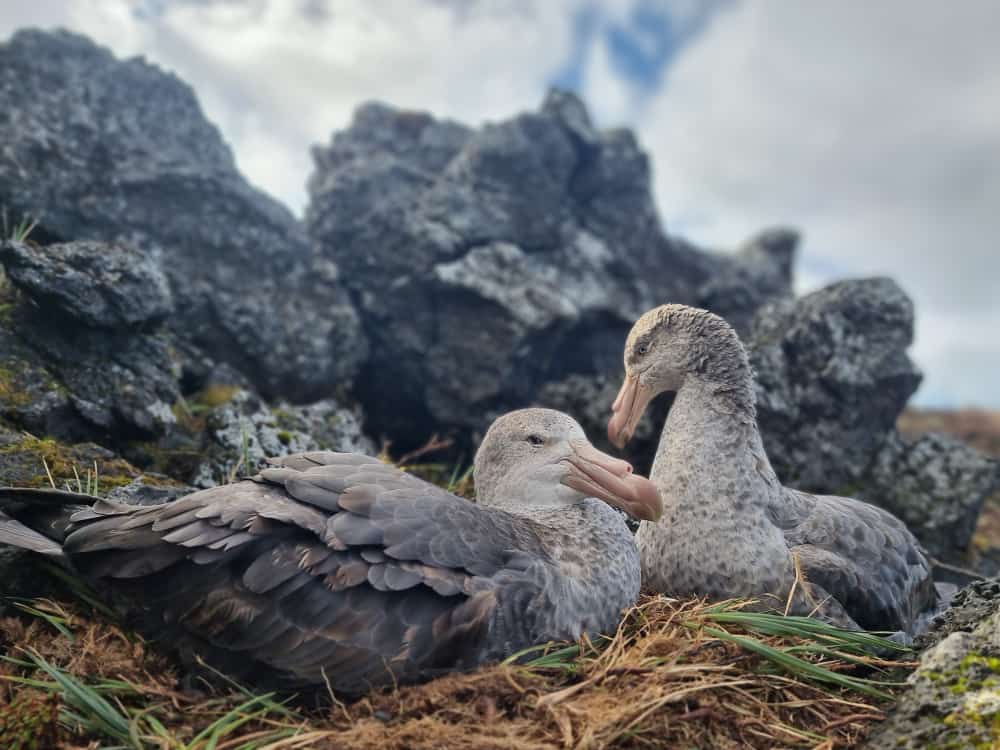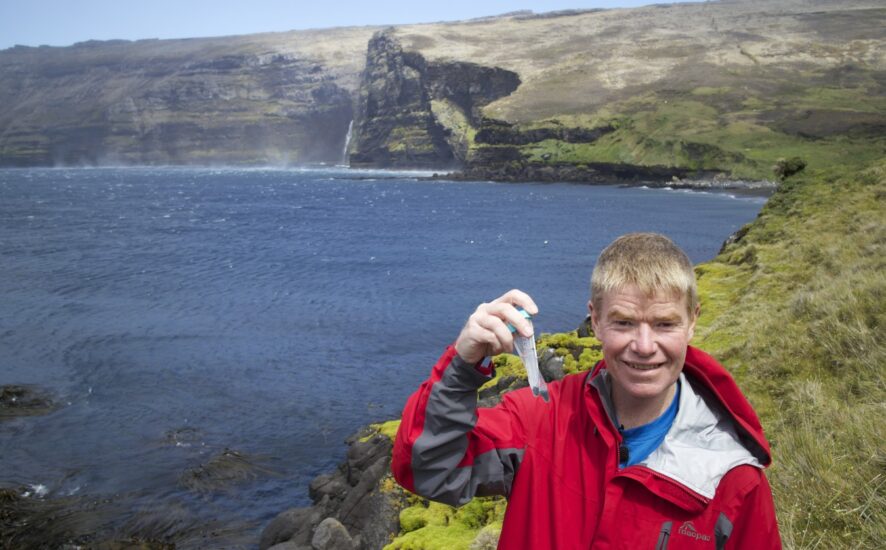The Mouse-Free Marion Project is pleased to announce the appointment of Antarctic scientist and conservationist Professor Steven Loudon Chown FAA as an International Patron, joining four others. They are His Royal Highness the Duke of Edinburgh seabird author and illustrator Peter Harrison MBE, South African businesswoman Gloria Tomatoe Serobe and Christel Takigawa, anchorwoman based in Japan.
International Patrons of the MFM Project help raise awareness and credibility of the Project by sharing their reputation and visibility. They lend their names to the Project by their endorsements, by helping to raise publicity and, when possible, by attending fund-raising and other events held by the Project. The Project thanks Steven and its other four International Patrons and looks forward to working closely with them as it prepares to eradicate House Mice on the largest island ever attempted in a single operation.
 Steven Chown is currently the Director of Securing Antarctica’s Environmental Future, an Australian Research Council (ARC) Special Research Initiative in Excellence in Antarctic Science, based at Monash University in Melbourne, Australia, where he is also a Professor of Biological Sciences. Previously, he was Head of the School of Biological Sciences at Monash University from 2012 to 2017. Before moving to Australia from South Africa, Steven instigated and then led the Antarctic Legacy of South Africa project at the University of Stellenbosch in its early years.
Steven Chown is currently the Director of Securing Antarctica’s Environmental Future, an Australian Research Council (ARC) Special Research Initiative in Excellence in Antarctic Science, based at Monash University in Melbourne, Australia, where he is also a Professor of Biological Sciences. Previously, he was Head of the School of Biological Sciences at Monash University from 2012 to 2017. Before moving to Australia from South Africa, Steven instigated and then led the Antarctic Legacy of South Africa project at the University of Stellenbosch in its early years.
Steven Chown writes to MFM News: “I am delighted and honoured to become part of the project, having long respected the ambition South Africa has to ensure the very best conservation outcomes for its sub-Antarctic Prince Edward Islands. I am looking forward to being of service in this important work to improve the prospects of the biodiversity and environment of Marion Island.”
Before moving to Australia in 2012, Steven was the founding Director of the DST-NRF Centre for Invasion Biology, an inter-institutional Centre of Excellence established in 2004 at Stellenbosch University, South Africa. He earned his Ph.D. from the University of Pretoria in 1989 for entomological research conducted on Marion Island over two full years. He rose from Lecturer to Professor at Pretoria over 1989 to 2001 before moving to Stellenbosch. His 37-year career has generated an exceptionally voluminous body of work comprising more than 500 scientific journal papers, commentaries, reviews, book chapters, advisory reports, and popular and primary research books. Focusing initially on insect physiology and ecology, his research has broadened into the study of biodiversity variation through space and time and the conservation implications of environmental change, including the means to mitigate it, especially within the sub-Antarctic and Antarctic realms. He co-developed the field of macrophysiology – the investigation of large-scale patterns in and processes underlying physiological variation and their ecological implications. He has served as Editor of the scientific journal Functional Ecology, and on 13 editorial boards of other high-impact journals. His accomplishments include a large number of invited keynote and plenary addresses at scientific conferences and at international and national institutions and scientific societies.
Steven’s suite of publications on Marion Island, and those by his students (many of whom are now active in sub-Antarctic research and conservation), include several that deal directly with the introduced House Mouse. In 1995 he co-organized a two-day workshop at the University of Pretoria to consider the desirability of eradicating the island’s mice. The workshop was largely motivated by the successful eradication of the island’s feral cats in 1991. This workshop might arguably have been the initiator of a long process that gained impetus when mice were first discovered to be attacking and killing albatross chicks on Marion in 2003 and led to the establishment of the Mouse-Free Marion Project.
For many years Steven represented the international Scientific Committee on Antarctic Research (of which he was President from 2016 to 2021) at Antarctic Treaty Consultative Meetings, providing scientific advice on a broad range of environmental and science policy matters. He is a Fellow of the Australian Academy of Science and the Royal Society of South Africa, and an International Honorary Member of the American Academy of Arts and Sciences. For his science and policy work in the Antarctic and sub-Antarctic he has received the South African Antarctic Gold Medal in 1997, the British Association Silver Medal of the Southern Africa Association for the Advancement of Science in 1999, the University of Pretoria Commemorative Research Medal in 2008, the Zoological Society of Southern Africa Gold Medal in 2009, the inaugural Tinker-Muse Prize for Science and Policy in Antarctica in 2009, the SCAR Medal for Excellence in Antarctic Research in 2014 and the French Republic’s Medal of the 30th Anniversary of the Madrid Protocol in 2021. Since his early career Steven has worked tirelessly to protect biodiversity in Antarctica and the sub-Antarctic, devoting his exceptional vision and capabilities to the translation of science into effective national and international policy.
Within South Africa, from 1996 to 1998 Steven was the inaugural Chair of the then Prince Edward Islands Management Committee, which prioritised a conservation ethos in the management of these islands, promoted the study of alien species, and improved biosecurity. This Committee contributed towards declarations of the Prince Edward Islands as a Special Nature Reserve in 1995, and a Wetland of International Importance under the Ramsar Convention in 2007.
MFM Project Leader, Dr Anton Wolfaardt writes of his pleasure of Steven Chown agreeing to become a Patron: “Steven is a scientist of international stature who is at the forefront of biological research, conservation and policy in the sub-Antarctic and Antarctica. His experience and knowledge of the Prince Edward Islands, and his demonstrated interest in the Mouse-Free Marion Project, means his patronage will help raise the Project’s profile at international policy forums and meetings and incur confidence in its conservation significance and operational approach”.
For further information access Steven Chown’s professional profile and collaborations at https://research.monash.edu/en/persons/steven-chown.

Selected References
Chown, S.L. & Cooper, J. (Eds). 1995. The impact of feral House Mice at sub-Antarctic Marion Island and the Desirability of Eradication: Report on a Workshop held at the University of Pretoria, 16- 17 February 1995. Directorate: Antarctica & Islands, Department of Environmental Affairs and Tourism, Pretoria. 18 pp.
Chown, S.L. & Froneman, P.W. (Eds). The Prince Edward Islands: Land-Sea Interactions in a Changing Ecosystem. Stellenbosch: Sun PReSS. 450 pp.
Chown, S.L. & Smith, V.R. 1993. Climate change and the short-term impact of feral house mice at the sub-Antarctic Prince Edward Islands. Oecologia 96: 508-516.
De Villiers, M.S., Chown, S.L. & Cooper, J. 2011. Prince Edward Islands Conservation Handbook. Stellenbosch: SUN PRESS. 80 pp.
McClelland, G.T.W., Altwegg, R.A., van Aarde, R.J., Ferreira, S.F., Burger, A.E. & Chown, S.L. 2018. Climate change leads to increasing population density and impacts of a key island invader. Ecological Applications 28: 212-224.
Preston, G.R., B.J. Dilley, J. Cooper, J. Beaumont, L.F. Chauke, S.L. Chown, N. Devanunthan, M. Dopolo, L. Fikizolo, J. Heine, S. Henderson, C.A. Jacobs, F. Johnson, J. Kelly, A.B. Makhado, C. Marais, J. Maroga, M. Mayekiso, G. McClelland, J. Mphepya, D. Muir, N. Ngcaba, N. Ngcobo, J.P. Parkes, F. Paulsen, S. Schoombie, K. Springer, C. Stringer, H. Valentine, R.M. Wanless & P.G. Ryan 2019. South Africa works towards eradicating introduced house mice from sub-Antarctic Marion Island: the largest island yet attempted for mice. In: Veitch, C.R, Clout, M.N., Martin, A.R., Russell, J.C. & West, C.J. (Eds). Island Invasives: Scaling up to meet the Challenge. Occasional Paper SSC No. 62. Gland: Switzerland: IUCN. pp. 40-46.
Terauds, A., Cooper, J., Chown, S.L. & Ryan, P. 2010. Marion & Prince Edward. Africa’s Southern Islands. Stellenbosch: SUN PReSS. 176 pp.
Cover image: Steven Chown on Possession Island 2017. Credit CJ Scheepers
John Cooper, News Correspondent & Sue Tonin, Assistant Project Manager, Mouse-Free Marion Project, 19, October 2023

